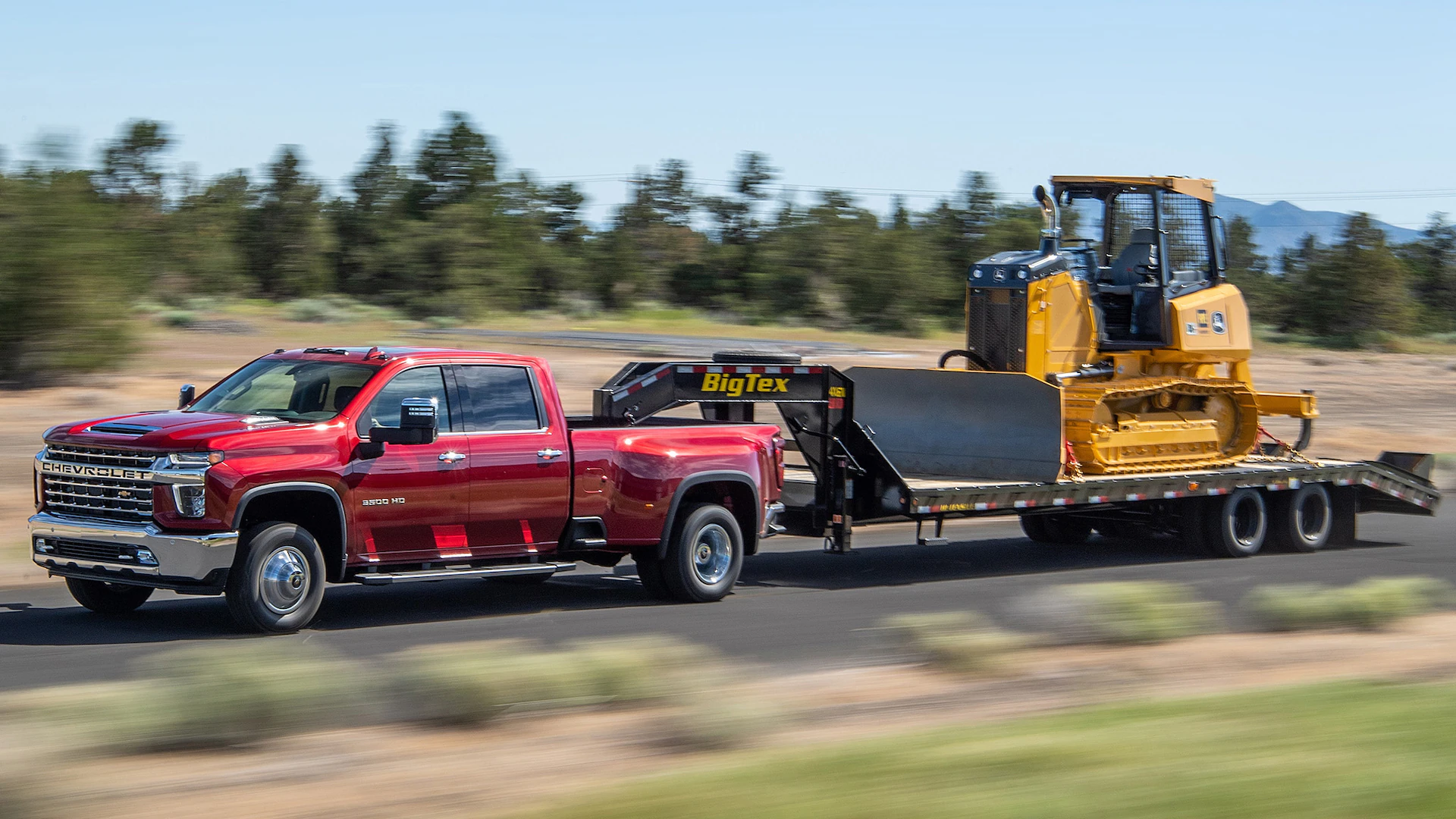Source: Chevrolet, 2022 Chevrolet Silverado 3500 HD
What is Hotshot Insurance?
Hotshot trucking is a niche within the transportation industry where independent truckers use their Class 2, 3, 4, or 5 pickup trucks or smaller rigs to haul time-sensitive and less-than-truckload (LTL) shipments, as well as automobiles. While it offers great earning potential, it also comes with unique risks and requirements. That’s where hotshot trucking insurance comes into play.
Hotshot trucking insurance is a specialized type of commercial auto insurance designed to protect hotshot truckers and their cargo. Unlike traditional trucking insurance, which covers Class 6 and above, hotshot insurance caters to the specific needs of those using smaller vehicles for deliveries. Continue reading to learn more about the requirements for hotshot trucking insurance, what is covered, and the average cost of hotshot trucking insurance.
Hotshot Trucking Insurance Requirements
Equipment
When it comes to hotshot trucking insurance, the type of equipment plays a significant role in determining your coverage needs. There are two primary components to consider: the truck and the trailer.
Truck
A Class 2, 3, 4, or 5 truck is the heart of a hotshot business. It’s essential to ensure that it’s adequately insured, and personal auto insurance isn’t going to cut it. Hotshot trucking insurance typically covers the vehicle against accidents, theft, and other unforeseen events. In addition to cargo coverage, a hotshots trucking policy must provide adequate liability coverage to protect you in case of an accident where you are at fault.
Trailer
The trailer you use for hauling cargo is equally important. Some types of trailers commonly seen in hotshot trucking include gooseneck and dovetail trailers, as well as deckover and lowboy trailers. We also cover auto hauling, which is often not an option with other hotshots insurance providers.
It’s essential to have insurance coverage for your trailer. This coverage can protect your trailer against damages and theft, ensuring that your cargo remains secure during transit.
CDL
While a Commercial Driver’s License (CDL) is not always required for hotshot trucking, it can impact insurance rates. Having a CDL gives you the option to take different loads and may make you eligible for certain discounts on your insurance premiums. Additionally, having a CDL can demonstrate a commitment to safety, which can be a positive sign for insurers and shippers.
What Does Hotshot Insurance Cover?
Hotshot trucking insurance offers a range of coverage options to meet a variety of needs. Some key components of a typical hotshot insurance policy include:
Liability Coverage
This is essential coverage that protects you in case you’re responsible for an accident that causes property damage or bodily injury to others.
Physical Damage Coverage
This covers damages to your truck and trailer caused by accidents, vandalism, or other unforeseen events.
Cargo Insurance
Cargo insurance covers the value of the cargo you’re hauling. This type of coverage is crucial as it safeguards your financial interests in case the cargo is damaged, stolen, or lost during transit.
Non-Trucking Liability
When you’re not actively hauling cargo, this coverage can protect you and cover your truck when you’re off-duty.
Cost of Hotshot Trucking Insurance
The cost of hotshot trucking insurance can vary based on several factors, including what types of coverage you have and the following:
Type of Equipment
The value and condition of your truck and trailer will impact your premiums.
Coverage Limits
The higher the coverage limits, the more you’ll pay in premiums.
Driving History
Your driving record and experience can affect your insurance rates. A clean driving history may result in lower premiums.
Cargo
The type of cargo you haul and its value will also influence your insurance costs.
Location
The area where you operate can impact your premiums. High-traffic urban areas may have higher rates than rural areas.
Deductibles
The amount you’re willing to pay out of pocket in the event of a claim will affect your premiums. Higher deductibles typically result in lower premiums.
Average Cost of Hotshot Trucking Insurance
At Cover Whale, the average cost of a hotshot policy covering auto liability, auto physical damage, and cargo can fall anywhere between $15,000–$20,000 annually. On average, about half of the cost is the auto liability coverage. Every policy is different, so contact your insurance agent and ask them to get an instant hotshot trucking insurance quote from Cover Whale.
The Cover Whale Difference
We’re known for our lightning-fast quotes and claims support, but there’s more to our hotshots insurance than just speed and ease.
While many companies don’t insure hotshot drivers, we know they’re a vital part of the transportation community. Ensuring hotshot trucking insurance is available for Class 2, 3, 4, and 5 drivers, including auto haulers overlooked by most companies, is part of our commitment to keeping drivers moving forward safely.
Hotshot Trucking Insurance: Wrapping Up
In the world of hotshot trucking, having the right insurance coverage is crucial to the success and longevity of your business. It provides the financial protection you need to operate with confidence and peace of mind, knowing that you’re covered in case of unexpected events.
Whether you’re a seasoned hotshot trucker or just starting in the industry, understanding the basics of hotshot trucking insurance is essential. It allows you to make informed decisions when selecting the right coverage for your unique needs.
At Cover Whale, we’re here to support you on your hotshot trucking journey. We offer comprehensive insurance solutions and driver safety programs tailored to the demands of your business, ensuring that you have the protection you need at competitive rates. Don’t leave the success of your hotshot business to chance—get the right coverage quickly and easily with Cover Whale.
Download our Hotshots Guidelines to learn more.

